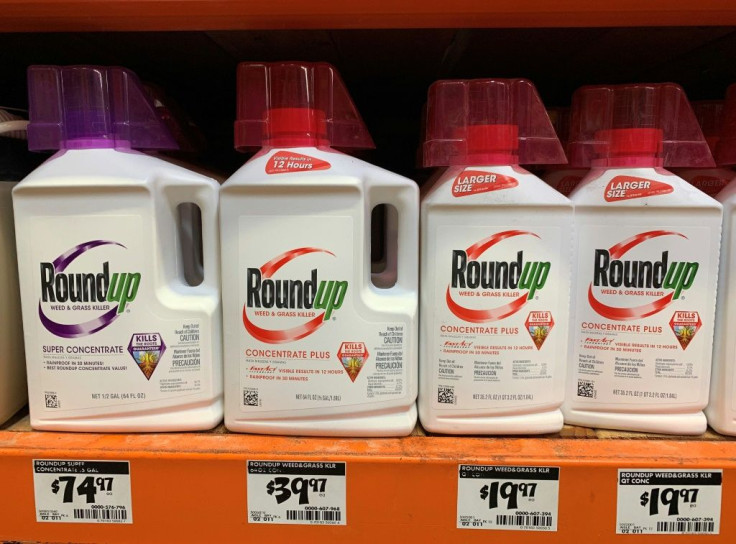Bayer Reports Surge In Number Of Legal Cases Over Roundup

German chemical and pharmaceutical giant Bayer reported Wednesday that US legal cases over weedkiller Roundup have more than doubled, but investors appeared more focused on the group's strong business performance.
The number of American lawsuits over Roundup grew between July and October to 42,700, from 18,400 in July, with plaintiffs alleging active ingredient glyphosate caused diseases including terminal cancers.
There was a "substantial surge in anti-Roundup advertising spend from the plaintiffs' side" in the third quarter after a federal judge ordered a mediation process, Bayer chief executive Werner Baumann told reporters in a telephone conference.
But "the number of lawsuits has no bearing on whether they are justified", Baumann insisted, reiterating his argument that "leading regulatory agencies worldwide are convinced that glyphosate-based products are safe".
Bayer's ever-mounting wave of lawsuits in the US follows its takeover of seeds and pesticides maker Monsanto last year for $63 billion, one of the largest foreign acquisitions in German corporate history.
Juries in several lower courts granted plaintiffs massive damages awards over Roundup, although they were later reduced by judges.
While appeals in the already-heard cases are ongoing, new cases have been pushed back to next year "to support the mediation talks," Baumann said, adding the company is "constructively engaging".
Court-appointed mediator Kenneth Feinberg in August denied reports the company had offered an $8 billion settlement to get the cases off its back.
Any deal must be "economically acceptable" and "there must be the highest possible certainty that the question is legally closed," Baumann said.
"I think only a small number of the current plaintiffs will really be paid" in any settlement, "those cases where there could in chemical or pharmaceutical terms be a link of their cancer to glyphosate," Baader Bank analyst Markus Mayer told AFP.
Mayer had in July estimated that such a payout could cost Bayer $15-20 billion, "based on an even higher number of potential lawsuits," he said.
Contented markets
The massive leap in the number of lawsuits appeared to leave investors unfazed, with Bayer shares gaining 1.6 percent to trade at 66.97 euros ($74.44) just after 11 am in Frankfurt (1000 GMT), against a DAX index down 0.3 percent.
"Bayer is making progress in all important areas" and on track to hit its financial targets in 2019, Baumann said.
Notably in the third quarter, the company agreed to sell its veterinary medicines unit to US-based Elanco Animal Health, while it will also hand two flagship over-the-counter medicines brands -- Dr Scholl's and Coppertone -- to American and German buyers.
And it will also dispose of its 60 percent stake in Currenta, which operates its former chemical parks in Germany.
Between them, the sales should bring in 9.3 billion euros before tax, spread across this year and next, Bayer finance chief Wolfgang Nickl said.
The windfall effect of a similar deal last year, when it sold off agrichemical businesses to BASF in exchange for regulators' green light for the Monsanto merger, meant Bayer's third-quarter profit this year plunged 63.9 percent, to just over one billion euros.
But in operating, or underlying profits counting out such one-off effects, Bayer saw growth of 2.8 percent, to 1.2 billion euros, while revenues added 6.1 percent, reaching 9.8 billion.
Sales and profits grew at two of the group's divisions, agrichemicals and over-the-counter medicines, while the pharmaceuticals unit reported falling profits, again blaming the comparison with a windfall effect in 2018's third quarter as well as costly product launches.
Over the full year, Bayer stuck to its forecast -- adjusted for the business units it will sell off -- of sales growth around four percent, to 43.5 billion euros, and earnings per share around 6.35 euros.
© Copyright AFP 2024. All rights reserved.











